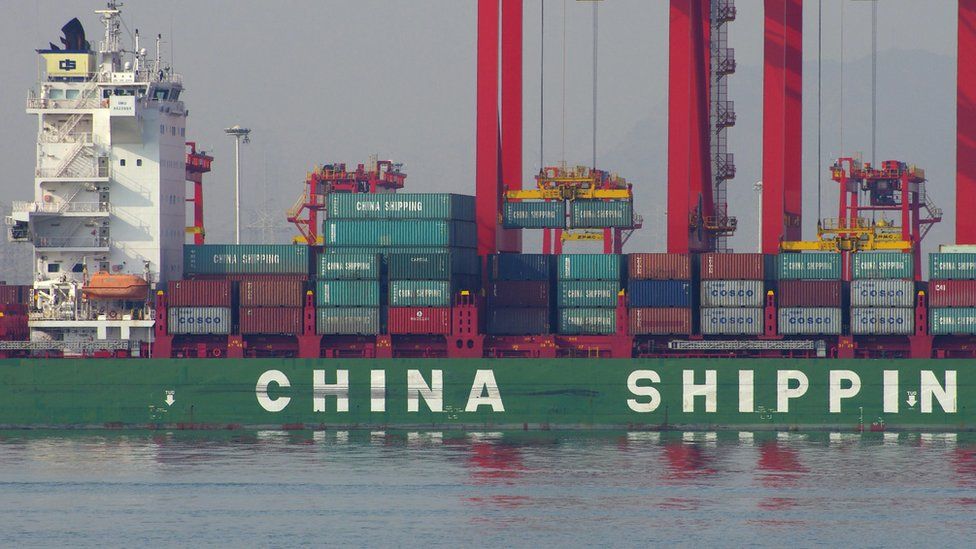China exports up first time since June
- Published

Chinese exports defied expectations in December to rise 2.3% from a year ago in yuan-denominated terms.
Forecasts were predicting a 4.1% fall in exports, but a weakening currency may have boosted the lagging sector.
Imports also beat expectations in yuan-dominated terms to only fall 4%, compared to forecasts of a 7.9% slump.
The jump in exports was the first rise since June last year as the sector has been battered by slowing demand and slumping commodity prices.
For the year, exports fell 1.8%, while imports tumbled 13.2% from 2014.
China's customs spokesman Huang Songping said at a news conference in Beijing that the country's exports fell last year due to weak external demand.
Trade figures in US dollar-denominated terms came out later in the day and were also better-than-expected. Exports fell 1.4%, compared to forecasts of an 8% fall, while imports declined 7.6% against expectations of an 11.5% decline.
Weaker yuan
The country's central bank had been aggressively weakening the yuan guidance rate -the rate the bank fixes for the currency on a daily basis - last week in an attempt to boost the sector.
But the depreciation of the yuan sparked fears that other countries in the region would also start to devalue their currencies to compete with China on exports and that rattled global markets.
This week, it has set the yuan rate steady in attempt to calm volatility in equity markets and soothe fears that China's economy may be slowing faster than anticipated.
The world's second largest economy is already expected to have grown at its slowest pace in a quarter of a century last year, with Beijing targeting 7% growth.
But many economists have warned that the Asian giant may undershoot that target as key sectors such as exports, manufacturing, property and consumption struggle to gain momentum.
However, Wednesday's closely watched better-than-expected figures could go a long way to ease fears about the Chinese economy at a time when attention is focused on how authorities are handling the market volatility.
The benchmark Shanghai Composite index was up 0.7% to 3,044.52 after the data was released.
- Published8 November 2015
- Published13 October 2015
- Published7 January 2016